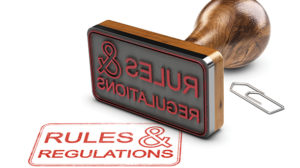Reassess your work to enhance safety

The rules established by industry organizations, as well as our own safety policies, are in place for a reason – to keep us safe. iStock.com/Olivier Le Moal
I have a thing. I like good coffee. Every morning, I heat the water, grind my beans and put them in the French press. I pour the hot water over the grounds, let it steep and enjoy as I peruse the news. I clean the French press once I’m done.
Recently, I had the glass carafe in my left hand while my right hand was inside of the carafe, cleaning it with a soapy sponge. I heard a noise that sounded like “pink.” I looked down, the carafe was in pieces in the sink and my right index finger knuckle was sliced open. I rinsed it, applied pressure to staunch the bleeding, and then dressed the wound.
That morning, I ran into a co-worker. She noticed the bandage and asked what happened. I said, “Well, I was cleaning my French press and the thing broke!” She asked how I clean it and, once I had explained my method, said, “Have you tried a bottle brush, so you don’t have to put your hand inside and risk getting cut?” I found myself saying, “Do you know how many times I’ve done this and never had a problem?”
That’s when I realized I was saying one of the things I’ve heard countless times when interviewing my co-workers while conducting an injury or incident investigation. Busted!
We perform a lot of tasks that have procedures, and sometimes we don’t realize there might be a better way to do them. We also fall into routines and might not realize there is a risk present that we can avoid.
Let’s also not forget the regulatory end of things. The National Fire Protection Association, Occupational Safety and Health Administration, National Institute for Occupational Safety and Health, American National Standards Institute, Federal Motor Carrier Safety Administration, Pipeline and Hazardous Materials Safety Administration, and the Environmental Protection Agency come to mind, to name a few.
The rules established by these organizations, as well as our own safety policies, are in place for a reason – to keep us safe. We want to go home at the end of the day free of injury and incident.
Capt. Chesley Sullenberger, the pilot who landed the US Airways plane on the Hudson River, saving the lives of all aboard, said the following about rules:
“Every rule that we have, everything we know, every procedure we use, we know because someone, or often many people, died. We have learned important safety lessons purchased at great cost, sometimes literally bought in blood. We have an obligation not to forget these lessons and have to relearn them. Timely action on recommendations is an important way to honor and remember those we’ve lost, and hopefully, to prevent similar accidents.”
Lessons learned? Perform personal risk assessments before and while performing tasks, whether at home or at work. Watch out for one another. Remember, no matter where you go or what you do, there will always be someone who is happy to see you.
After the conversation with my co-worker, a package of bottle brushes appeared on my office chair. My safety buddy was looking out for me.
Mark Anderson is safety, compliance and fleet manager for Dead River Co. in Maine, New Hampshire, Vermont and Massachusetts. He can be reached at mark.anderson@deadriver.com or at 207-358-5800, ext. 5786.
NOTE: The opinions and viewpoints expressed herein are solely the author’s and should in no way be interpreted as those of LP Gas magazine or any of its staff members.
















